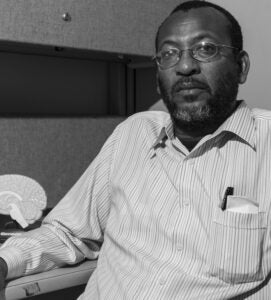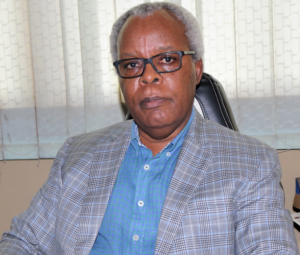About the October 20 Forum
Wednesday October 20, 11AM – 12PM EDT
Watch the Forum:
Speaker bios
 Dr. Craig Morgan, Ph.D., is Professor of Social Epidemiology, Head of the
Dr. Craig Morgan, Ph.D., is Professor of Social Epidemiology, Head of the
Health Service and Population Research Department at the Institute of Psychiatry, King’s College London, and Co-Director of the ESRC Centre for Society and Mental Health. He has previously held a MRC Special Training Fellowship in Health Services Research, and completed his PhD in Social Psychiatry, at the Institute of Psychiatry. His research is focused on social and cultural influences on the onset, course and outcome of mental disorders, particularly during adolescence, and he has led multi-country programmes on these topics, funded by, among others, the MRC, Wellcome Trust, European Union, and ESRC. He has published over 200 academic papers on these topics, and edited two books, Society and Psychosis, published by Cambridge University Press, and Principles of Social Psychiatry, published by Wiley-Blackwell. He is editor-in-chief of the journal Social Psychiatry and Psychiatric Epidemiology.
 Dr. Gerard Hutchinson, Ph.D., is currently the Professor and Unit Lead in Psychiatry, at the School of Medicine, Faculty of Medical Sciences (FMS), University of the West Indies (UWI), St Augustine. He also serves as the Coordinator of the post graduate training programme in Psychiatry, St Augustine campus and is the University Examiner in Psychiatry for the four campuses of the UWI. He functions as the Head of Psychiatry and Mental Health Services at the North Central Regional Health Authority (NCRHA), where he oversees and coordinates the in-patient and outpatient mental health services of the NCRHA inclusive of the Stress Relief Centre and Child and Adolescent Mental Health Clinic. He has authored or co-authored over 130 peer reviewed academic publications and is the national representative of the International Association of Suicide Prevention as well as the World Suicidology Network. He serves on the Research Advisory Committee of the Caribbean Public Health Agency. He is a co-Principal Investigator of the Intrepid 2 project.
Dr. Gerard Hutchinson, Ph.D., is currently the Professor and Unit Lead in Psychiatry, at the School of Medicine, Faculty of Medical Sciences (FMS), University of the West Indies (UWI), St Augustine. He also serves as the Coordinator of the post graduate training programme in Psychiatry, St Augustine campus and is the University Examiner in Psychiatry for the four campuses of the UWI. He functions as the Head of Psychiatry and Mental Health Services at the North Central Regional Health Authority (NCRHA), where he oversees and coordinates the in-patient and outpatient mental health services of the NCRHA inclusive of the Stress Relief Centre and Child and Adolescent Mental Health Clinic. He has authored or co-authored over 130 peer reviewed academic publications and is the national representative of the International Association of Suicide Prevention as well as the World Suicidology Network. He serves on the Research Advisory Committee of the Caribbean Public Health Agency. He is a co-Principal Investigator of the Intrepid 2 project.
 Dr. Oye Gureje, Ph.D., is Professor of Psychiatry and Director, WHO Collaborating Centre for Research in Mental Health, Neurosciences and Substance Abuse, Department of Psychiatry, University of Ibadan. He is also Extraordinary Professor, Department of Psychiatry, Stellenbosch University, South Africa. His main research interests are in epidemiology and global mental health. He has conducted large scale community-based surveys, large randomized controlled trials, implementation research and research on health system strengthening with grant support from the Wellcome Trust, MRC (UK), EU, AusAid, Grand Challenges Canada, IDRC and the NIMH, among others. He has published more than 500 peer-reviewed scientific papers, monographs, book chapters, and has co-edited 3 books and is listed among the global highly cited researchers by Clarivate Analytics. A recipient of many awards, he is a Fellow of the Nigerian Academy of Science, Fellow of the Nigerian Academy of Medicine, and a laureate of the Nigerian National Order of Merit.
Dr. Oye Gureje, Ph.D., is Professor of Psychiatry and Director, WHO Collaborating Centre for Research in Mental Health, Neurosciences and Substance Abuse, Department of Psychiatry, University of Ibadan. He is also Extraordinary Professor, Department of Psychiatry, Stellenbosch University, South Africa. His main research interests are in epidemiology and global mental health. He has conducted large scale community-based surveys, large randomized controlled trials, implementation research and research on health system strengthening with grant support from the Wellcome Trust, MRC (UK), EU, AusAid, Grand Challenges Canada, IDRC and the NIMH, among others. He has published more than 500 peer-reviewed scientific papers, monographs, book chapters, and has co-edited 3 books and is listed among the global highly cited researchers by Clarivate Analytics. A recipient of many awards, he is a Fellow of the Nigerian Academy of Science, Fellow of the Nigerian Academy of Medicine, and a laureate of the Nigerian National Order of Merit.
Dr. Karestan Koenen, Ph.D., is Professor of Psychiatric Epidemiology in the Department of Epidemiology at HSPH and the host of the Population Mental Health Forum Series. She aims to reduce the population burden of mental disorders through research, training, and advocacy. She is passionate about using science to overcome violence and trauma, which are major preventable causes of health problems globally.




